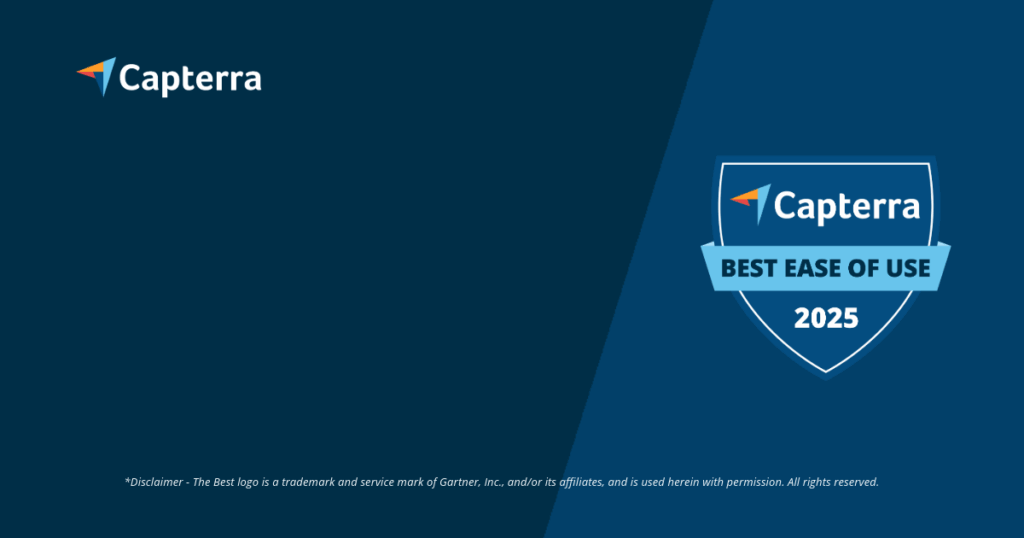The German construction industry: Strong foundations and digital opportunities for your construction business
The German construction industry – it is not only a vital foundation of our national economy, but also central to every construction company . We are talking about an annual turnover of over 160 billion euros and almost a million employees; its economic relevance is therefore undeniable. It creates not only housing and infrastructure but is also a significant driver of innovation. In this dynamic environment, modern approaches and digitalization play an increasingly important role in securing the efficiency and competitiveness of every construction business. We see it daily: Optimizing processes through digital tools is no longer just an option but a clear necessity. Discover with us how you can sustainably improve communication and project management in your construction company . Are you ready to set the course for a successful future? Learn more about innovative solutions tailored specifically to the needs of the construction industry.
- The German construction industry is an economic heavyweight with over 160 billion euros in revenue and almost a million employees, emphasizing its central role in every construction business.
- Modern approaches and digitalization are essential for securing efficiency and competitiveness in this dynamic environment.
- Optimizing processes through digital tools is a necessity for sustainably improving communication and project management.
- The construction industry is a significant driver of innovation, creating housing and infrastructure and closely intertwined with other sectors.
The importance of the construction industry goes far beyond mere construction services. It is closely linked with numerous other sectors, from material production to specialized services. A strong construction company, like perhaps yours, therefore plays a significant role in regional development and job creation. The ability to complete complex projects on time and within budget is a crucial success factor – you know this best. Here, digital solutions like project management software for construction can be an essential support. The real challenge, as we see it, lies in skillfully combining traditional working methods with the opportunities presented by new technologies. This can enhance the productivity of each individual business and secure future viability. Adapting to new standards and meeting increasing customer demands are naturally central aspects.
In the context of the industry, every construction company acts as a crucial player – from planning to execution and maintenance of construction works. The diversity is impressive: from small trades to internationally operating corporations. However, regardless of size, you all face similar challenges: How do I increase efficiency? How do I keep costs under control? How do I secure skilled labor? Digitalization offers tremendous potential here, for instance, through the use of communication software for construction companies, to optimize the flow of information and reduce misunderstandings. A modern construction company recognizes these opportunities and strategically invests in technologies that simplify everyday work and ensure the quality of projects. For us, it is clear: Integrating digital tools is a strategic step for every future-oriented business.Construction industry: Overcoming current challenges together and fully exploiting digital potential
Current challenges for every construction company
As we all know, the construction industry is facing a number of challenges that affect every construction company business. Rising material and energy costs significantly pressure margins, while regulatory requirements, especially in sustainability and environmental protection, are increasing. The shortage of skilled labor further exacerbates the situation, as finding qualified staff is often challenging and demographic changes do not make personnel planning any easier. These factors require every construction business to have high adaptability and strategic foresight. It is crucial to find innovative solutions to remain competitive and implement projects successfully despite these adversities. We are convinced: Overcoming these challenges is essential for the future viability of the entire industry and every individual business.
- Every construction company faces challenges like rising material and energy costs, increasing regulatory demands, and a severe shortage of skilled labor.
- Economic uncertainties, complex approval processes, and the necessity for sustainable construction methods further increase the pressure.
- Digitalization and innovation offer significant opportunities for efficiency enhancement, cost optimization, and the exploration of new market segments.
- Technologies like construction software, BIM, and sustainable materials are crucial for securing competitive advantages and strengthening future viability.
The economic framework conditions, shaped by inflation and interest developments, naturally influence investment willingness and thus the order situation for a construction company. Additionally, there are often complex approval procedures and constantly changing regulations that require flexible project planning. Another important topic that concerns all of us is the need to reduce the ecological footprint and implement sustainable construction methods – often associated with higher initial investments. Every construction company must therefore find ways to compensate for these cost increases while maintaining high-quality standards. The search for efficient processes and alternative materials is thus a continuous process for every innovative construction business.
Opportunities through digitalization and innovation
Yet despite the challenges, digitalization and innovation offer significant opportunities for every construction company – and that is good news! Digital technologies allow for a significant increase in efficiency across all project phases, from planning to execution to documentation. The use of construction software for companies can, for example, optimize project planning and improve team collaboration. Sustainable construction methods and innovative materials not only open up new market segments but also actively contribute to resource conservation. Furthermore, digitalization creates new business models and services, such as digital site documentation or facility management using digital tools. A proactive construction company like yours can leverage these opportunities to secure competitive advantages and strengthen its market position. Investing in digital solutions is thus an investment in future viability for every construction company.
The introduction of digital tools like Building Information Modeling (BIM) is, as we see, revolutionizing planning and construction processes. BIM allows for better coordination among all project participants and helps to identify mistakes early and reduce costs. Innovative materials, like CO2-reduced concrete or recycled construction materials, are gaining importance and supporting the important goal of sustainable building. For a construction company, this means continuously educating itself and adapting to new technologies – an exciting process! Additionally, utilizing data analytics can help optimize processes and make informed decisions. Digital transformation is thus a key for every construction company, to become more efficient, sustainable, and competitive. We are confident: The future of the construction industry is digital.Leaders in the German construction sector: What we can learn from the success strategies of leading construction companies
Analysis of leading companies
Let’s take a look at the top of the German construction industry: Companies like HOCHTIEF AG, which impresses with its strong international diversification and global reach. A large portion of the revenue is generated abroad, which impressively underscores the importance of global markets for large German construction companies. STRABAG SE, on the other hand, is characterized by a wide variety of projects and a strong regional presence . It covers nearly all areas of construction and operates in many European countries. Other top companies like PORR GmbH & Co. KGaA SE, Goldbeck GmbH with its clear focus on systematic construction with prefabricated parts, and the Max Bögl Group, known for its innovations in research and technology, shape the market. These leading players show us that a variety of strategies can lead to success – whether through specialization, internationalization, or technological leadership. Each of these construction companies has developed its own strengths to succeed in competition.
Goldbeck GmbH, for example, has achieved truly impressive growth with its approach to systematic construction using prefabricated elements. This focus on efficiency and scalability, especially in commercial and municipal construction, shows how innovative construction methods can significantly advance the success of a construction company . The Max Bögl Group, in turn, places strong emphasis on research and technology, positioning itself as a leader in sustainable construction solutions. These examples clearly illustrate that both generalists and specialists can be successful in the German construction market, provided they pursue clear strategies and adapt flexibly to market conditions. Analyzing the strategies of these top construction companies provides valuable insights for all of us in the industry.
Success factors and competitive advantages
The success factors for a construction company are, as we see, diverse. Technological innovation and continuous research are crucial for developing new construction methods and increasing efficiency. Bauer AG is a good example here with the development of the injection anchor – a true pioneering achievement. Specialization in niche markets, like Kaefer in the insulation sector, or broad diversification across various construction segments and geographical markets can also create significant competitive advantages. Increasingly important is also the topic of sustainability and social responsibility. Companies that offer ecologically sensible construction methods and are aware of their social responsibilities, like Lindner Group KG as a family business with a global presence and strong regional ties, can score points with customers and skilled workers. A modern construction company must consider these factors to be successful in the long run. The ability to adapt and the willingness to invest in new technologies are essential for every construction company.
Another important competitive advantage is the qualification of employees and managers – the heart of every business. In Germany, construction trades, for example, must have a craft manager with the necessary certification. This underscores the immense importance of technical competence. Additionally, the ability to efficiently manage large projects and have access to a network of reliable subcontractors plays a significant role. The Zech Group impressively demonstrates this by participating in various large projects in Germany. For every construction company , it is therefore essential not only to invest in machinery and materials but, above all, in the know-how and ongoing training of its employees. The digitalization of the construction industry also offers exciting new opportunities for training and knowledge management.
Key success factors at a glance
To succeed in today’s competition, a construction company should consider various aspects, in our opinion:
- Technological leadership: Invest in research and development to utilize innovative construction methods and materials.
- Efficient project management: Rely on modern software solutions for planning, control, and monitoring, such as effective construction management software.
- Qualified employees: Ensure continuous training and education of your staff to keep up with technological developments.
- Sustainability: Implement environmentally friendly construction methods and resource-saving processes – a must for the future.
- Strong customer orientation: Understand the needs of your clients and deliver tailored solutions that inspire.
The digital revolution in construction: How software solutions become the driver of efficiency for your construction business
The role of software providers
Software providers play, as we find, a crucial role in the digital transformation of the construction industry. Companies like RIB Software offer comprehensive digital solutions, covering the entire value chain of a construction project – from bidding to completion. Products like RIB iTWO and RIB 4.0 enable structured digital workflows and significantly more efficient project management. PlanRadar is another excellent example of software that noticeably improves collaboration, documentation, and communication on construction sites.These digital tools help every construction company, shorten project durations, reduce costs, and improve quality. Providers like gripsware datentechnik GmbH, with their pro-Plan software for project and construction scheduling, documentation, and defect management, also make valuable contributions to the digitalization of construction operations. Choosing the right software is an important strategic step for every construction company that should be well considered.
- Software providers like RIB Software and PlanRadar are key players in digital transformation and offer solutions for the entire construction process.
- Digital tools enable structured workflows, more efficient project management, and improved collaboration on construction sites.
- Application areas of digital solutions include construction estimation, cost control, project management, construction planning, documentation, and defect management.
- Modern construction software integrates technologies like BIM and improves communication, leading to shorter project durations and higher quality.
RIB iTWO, for example, is software for model-based planning, AVA (bidding, allocation, billing), control, and monitoring – a true powerhouse. It supports planners, construction companies, and builders in building, civil engineering, and road construction. RIB 4.0, on the other hand, is a process-oriented, integrated enterprise and project platform that digitalizes all relevant construction and project processes. Such platforms promote collaboration, enhance quality, and support sustainable construction methods. For a construction company , the use of such systems represents a fundamental but positive change in working methods towards more transparency and efficiency. Investing in ERP software for the construction industry can play a central role in optimally networking all company areas. ERP Software für die Baubranche kann hierbei eine zentrale Rolle spielen, um alle Unternehmensbereiche optimal zu vernetzen.
Application areas of digital solutions
Digital solutions find application in numerous areas and offer every construction company concrete benefits. In the construction estimation and cost control, software solutions enable more precise and faster calculations as well as continuous monitoring of project costs – saving time and nerves. In project management and construction planning, digital tools support scheduling, resource allocation, and coordination of all participants. Another important application area is documentation and defect management. Mobile applications allow direct data collection on the construction site, significantly facilitating tracking and resolution of issues. For every construction company , the comprehensive digitalization of these core processes is a key to greater efficiency and reduced risks. The use of software for companies in construction is therefore, in our view, essential.
Modern construction software supports not only classic tasks but also integrates new technologies like Building Information Modeling (BIM). BIM allows for 3D visualization of the construction project and better coordination of trades – a true game changer. Communication is also improved through digital platforms as all project participants can access current information at any time. This reduces misunderstandings and speeds up decision-making processes. For a construction company, which has many field employees, mobile solutions that enable easy data collection on-site are especially valuable. The digital transformation thus affects all areas of a construction company and requires a rethink of established processes – an exciting challenge!From practice for practice: How construction companies benefit from digitalization projects
Examples from practice
Numerous construction companies have successfully implemented digitalization projects and are now enjoying the benefits – and we are pleased to see this! The use of RIB iTWO and RIB 4.0 has led to significant efficiency gains in many companies in project execution. Through the model-based working method and the integration of all processes, planning errors could be reduced and cost control improved. The use of PlanRadar has proven to be extremely effective for the improvement of project communication and defect management. Site managers and skilled workers can digitally capture defects directly on the construction site and assign them to the responsible parties, significantly reducing processing times. The implementation of Building Information Modeling (BIM) is another important step that many forward-thinking construction company are taking. BIM enables better visualization, collaboration, and error prevention in complex construction projects. These examples clearly show: Digitalization in construction operations is no longer a gray theory but lived practice with measurable successes.
Need a concrete example? A medium-sized construction company was able to reduce its administrative effort by an impressive 20% by introducing a mobile solution for site documentation. Employees capture daily construction reports and photo documentation directly via smartphone or tablet, significantly simplifying post-processing in the office. Another large construction company consistently uses BIM for all major projects and was able to automate the clash detection between different trades, resulting in a 15% reduction in planning changes during the construction phase. Such success stories hopefully motivate other construction companies to take the step into digitalization and exploit the diverse potentials.
Lessons Learned and Best Practices
From successful digitalization projects, important insights and best practices can be derived for every construction company , which we are happy to share with you. A central role is played by the importance of training and continuous education of employees. For the best software is of little use if the users do not know how to use it effectively – that is a point we emphasize repeatedly. The integration of digital solutions into existing processes must be carefully planned and implemented step by step to minimize resistance and achieve high acceptance. It is also important to measure and evaluate the success of digitalization measures. Only this way can it be determined whether the desired goals have been achieved and where adjustments might need to be made. An open exchange about experiences and challenges within the industry can also help to learn from each other and push forward the digital transformation in the whole sector. Every construction company should consider these aspects when planning its digitalization strategy.
Checklist for successful digitalization projects:
For a construction company, planning digitalization projects, the following points are crucial in our view:
- Clear objectives: Define what specific improvements you want to achieve through digitalization (e.g., cost reduction, efficiency increase, quality improvement).
- Employee involvement: Involve your employees early in the process and ensure comprehensive training – this is essential!
- Choosing the right software: Select solutions that genuinely match the specific requirements and processes of your construction company . Also consider chat software for construction companies to improve internal and external communication.
- Step-by-step implementation: Introduce new systems gradually to avoid overwhelm and highlight initial successes.
- Continuous optimization: Regularly review the benefits of the technologies used and adjust your strategy as needed – stay on track!
Looking ahead: Innovative technologies and sustainable trends for your construction business
New technologies and materials
The construction industry is, as we all feel, undergoing an exciting transformation driven by new technologies and a greater focus on sustainability. The 3D printing in construction is gaining importance and allows for the rapid and cost-effective production of complex components or even entire buildings – fascinating, isn’t it? The use of artificial intelligence (AI) and machine learning opens new possibilities in construction planning, process optimization, and predictive maintenance. For instance, AI systems can analyze large amounts of data to recognize patterns and create more accurate forecasts. In the realm of materials, the trend is clearly towards sustainable and environmentally friendly building materials. This includes recycled materials, wood from sustainably managed forests, or innovative insulating materials with a low ecological footprint. For every construction company, it is crucial to keep an eye on these developments and examine how they can be integrated into one’s own processes and offerings. We are convinced: The adoption of new technologies is a key to the competitiveness of every construction company.
Startups in the construction tech scene are driving many of these innovations forward with great enthusiasm. Solutions for digital material procurement (e.g., Myterial), waste management (e.g., Wastebox), or the rental of construction machinery (e.g., Digando, Klarx) cleverly optimize existing processes. Advanced technologies like AI for object recognition in point clouds (Aurivus) or digital twins (Framence) demonstrate the enormous potential of data-driven approaches. For a construction company, this presents great opportunities for efficiency improvement and the development of new services. Observing the startup ecosystem can provide valuable impulses for one’s own innovation strategy – so take a closer look!
Future perspectives for every construction company
The future of the construction industry will, we are sure, be shaped by further profound changes. Automation and robotics will increasingly be implemented on construction sites and take over physically demanding or repetitive tasks. Smart buildings, that is intelligently interconnected buildings which are operated efficiently and offer high comfort to users, will increasingly become the standard. Another important trend is the circular economy and resource efficiency. This means keeping building materials in circulation for as long as possible, minimizing waste, and reducing energy consumption – a necessity of the hour. For every construction company this brings new requirements, but also exciting new business fields. The shift towards a more sustainable and digital construction industry is irreversible and requires every construction business to actively engage with these future topics. The ability to develop innovative solutions for these challenges will be critical for long-term success.
The integration of lean management principles, supported by digital tools such as those from LCM Digital or Koppla, shows the growing interest of the industry in process optimization. The vision is a construction site where processes seamlessly interconnect, resources are optimally utilized, and communication functions smoothly – a worthy goal! For a construction company , this means not just investing in individual technologies but developing holistic concepts for digital and sustainable transformation. The willingness to change and openness to new ideas are critical success factors for every future-oriented construction business.Cleverly overcoming digitalization hurdles in construction: Strategies for your construction business
Resistance and obstacles
Despite the obvious benefits, digitalization in the construction industry often still encounters resistance and obstacles, as we repeatedly experience. A lack of acceptance among employees and missing know-how in dealing with new technologies can considerably hinder implementation. Many employees are used to traditional working methods and may initially see digital tools as an additional burden. Concerns regarding data protection and data security, especially when using cloud solutions or integrating messaging services, are also widespread and need to be taken seriously. Last but not least, the often high initial investment costs for software, hardware, and training are a hurdle, particularly for smaller and medium-sized construction companies. These challenges must be actively addressed to successfully shape the digital transformation and the potentials for every construction company can be fully utilized.
The traditionally less digitized nature of some areas of the construction industry, such as trades, sometimes leads to the advantages of new technologies not being immediately recognized. Clear communication of the benefits and a demonstration of how digital tools can concretely facilitate everyday work are essential. For a construction company it is therefore important to foster a culture of openness and learning, where employees are encouraged to try out new technologies and share their experiences. Overcoming these internal hurdles is often the first and most important step towards successful digitization for any construction company.
Solutions for your construction company
To overcome the hurdles of digitization, there are various solutions that any construction company can pursue – and here we want to encourage you! The promotion of further education and training of employees is essential to build the necessary know-how and increase acceptance of new technologies. The development and selection of user-friendly software solutions, which are intuitive to use and offer clear added value, can shorten the onboarding time and increase motivation. This is where we come in with Valoon, by offering one of the simplest project management software solutions available. In addition, the support through government funding programs can help reduce the financial barriers to investing in digital technologies. It is advisable for every construction company to inform itself about the available options and develop a tailored digitization strategy that considers both the technical and human aspects.
Key steps to overcoming digitization hurdles:
Ein construction company can take the following measures to successfully master digitization obstacles:
- Change Management: Actively accompany the digital transformation, clearly communicate the benefits, and involve your employees in decision-making – take your team along with you!
- Launch pilot projects: Test new technologies initially in small, manageable projects to gather experiences and make successes visible.
- Utilize external expertise: Consider consulting or specialized service providers as needed to assist you in selecting and implementing software solutions.
- Focus on simple solutions: Start with software that is easy to use and quickly provides added value, such as solutions for improving communication in the construction company – just like ours!
- Success monitoring: Define metrics to measure the progress of your digitization efforts and make adjustments as necessary.
Valoon GmbH: Your solution for truly easy digitization in the construction industry
The offering from Valoon for your construction company
At Valoon GmbH, we have made it our mission to noticeably optimize communication and project management for every construction company construction company. Our cloud-based SaaS platform is specifically tailored to the needs of the construction industry and related sectors. A true core feature of our solution is the seamless integration of common messenger services like WhatsApp, Telegram, and MS Teams – exactly the tools your teams are already familiar with and use. This enables your field employees to continue using familiar tools while we ensure that the transmitted information is automatically structured and transformed into valuable project data in the background. Our platform also offers you central task management, intelligent reporting for photo documentation and daily reports, secure cloud-based project storage, and automatic translation into over 50 languages. With this, we believe we provide every construction company with a truly innovative and, above all, user-friendly solution.
Our platform at Valoon is characterized by a deliberate focus on simplicity and user-friendliness. We understand very well that not every field employee is an IT expert – and that doesn’t need to be the case! That’s why we have developed a solution that is intuitively usable without lengthy training. By cleverly utilizing familiar messenger services, the often tedious necessity of getting employees accustomed to complex new software is eliminated. Instead, they can communicate as they are used to, while Valoon takes care of structuring and processing the data in the background. This significantly lowers the barriers to entry for digitization and makes our solution, we believe, attractive for any construction company company looking to streamline its processes.
The added value of Valoon for your construction company
The use of our software offers your construction company a truly noticeable added value. Through the radical simplification of data collection and processing directly from the construction site the flow of information between field and office is sustainably improved – and this without additional effort for your teams. We automatically transform unstructured communication via messenger into structured project data. This avoids the dreaded information overload and creates a solid data foundation for your decisions. The result? A significant reduction in administrative effort and a clear increase in efficiency. Another significant advantage is the reduction of entry barriers for digitization, especially in traditionally less digitized sectors like construction. With Valoon, your construction company can fully leverage the benefits of digitization without overwhelming your employees with complicated software. Our chat software for construction companies is an important key to this.
Our unique value proposition, of which we are particularly proud, consists of offering one of the simplest project management software in the world. We relieve you of the need for complex software training for field employees by transforming everyday messenger communication into valuable project data – all automatically. This is particularly beneficial for any construction company, which has many field employees or operates from decentralized locations. The automatic translation also greatly facilitates collaboration in multilingual teams. By using Valoon, your construction company can thus not only reduce costs and increase efficiency but also enhance employee satisfaction by providing them with simple and effective tools that genuinely make their work easier.Future-proof: How digitization will become a decisive success factor for your construction company
Digitalization is, as we all see, not a temporary trend but a fundamental change that is sustainably transforming the construction industry. For every construction company, it is crucial to actively seize the opportunities associated with it in order to remain competitive and secure its future viability. The examples and solutions presented here show that digital technologies offer a variety of ways to increase efficiency, reduce costs, and improve the quality of construction projects.From optimizing construction calculations to effective project management to transparent communication – the benefits are clear. The challenge for every construction company now lies in selecting the right tools and successfully integrating them into their own processes. We know that the journey into the digital future requires courage, willingness to invest, and a readiness to explore new paths.
Development is progressing rapidly: New technologies such as AI, 3D printing, and robotics will further revolutionize the working methods in construction – an exciting time! At the same time, the demands for sustainability and resource efficiency are increasing. A modern construction company must face these developments and act proactively. Digital transformation is not just a means to an end, but a strategic success factor. It allows for more agility in responding to market changes, offering innovative services, and positioning oneself as an attractive employer. We are convinced: The future belongs to those construction companies that recognize digitization as an opportunity and fully unleash its potential. Take advantage of the opportunities that software solutions like ours provide to make your construction company fit for the future.
Are you ready to elevate the efficiency and communication in your construction business to a new level? We at Valoon GmbH offer you one of the simplest project management software in the world, transforming everyday messenger communication into structured project data – effortlessly. Optimize your data collection, improve information flow, and lower the barriers to entry for digitization. Contact us today for a personalized consultation and find out how Valoon can sustainably support your construction company construction efforts. Register for a free demonstration and take the first step into a more digital and efficient future. Visit our contact page and let’s optimize your projects together – we look forward to hearing from you!
How can my construction company make communication between the construction site and the office more efficient?
By using software solutions like Valoon that integrate common messenger services and automatically structure information. This reduces misunderstandings and significantly speeds up the flow of information.
Is it complicated to introduce new software for employees in the field of my construction company Not necessarily. Solutions like Valoon rely on
Nicht unbedingt. Lösungen wie Valoon setzen auf maximum simplicity and use familiar tools like WhatsApp. This means that the training effort is minimal and acceptance among employees is high.
What specific advantages does digitizing construction site documentation offer my construction company?
Digital construction site documentation saves time in creating daily reports and photo documentation, improves traceability and ensures a seamless project data storage, which can reduce administrative effort by up to 20%.
How can Valoon help my construction company in managing the flood of information?
Valoon automatically transforms unstructured communication from messengers into structured project data. This creates clarity, avoids information overload, and ensures that important details do not get lost.
My construction company often struggles with language barriers on the construction site. Are there digital solutions for this?
Yes, modern communication platforms like Valoon offer an automatic translation feature in over 50 languages, which greatly facilitates collaboration in multilingual teams and reduces misunderstandings.
How does Valoon support my construction company in task management?
Valoon offers a central task management, which is directly linked to communication on the construction site. Tasks can be easily created, assigned, and tracked from chats, improving organization and transparency..








